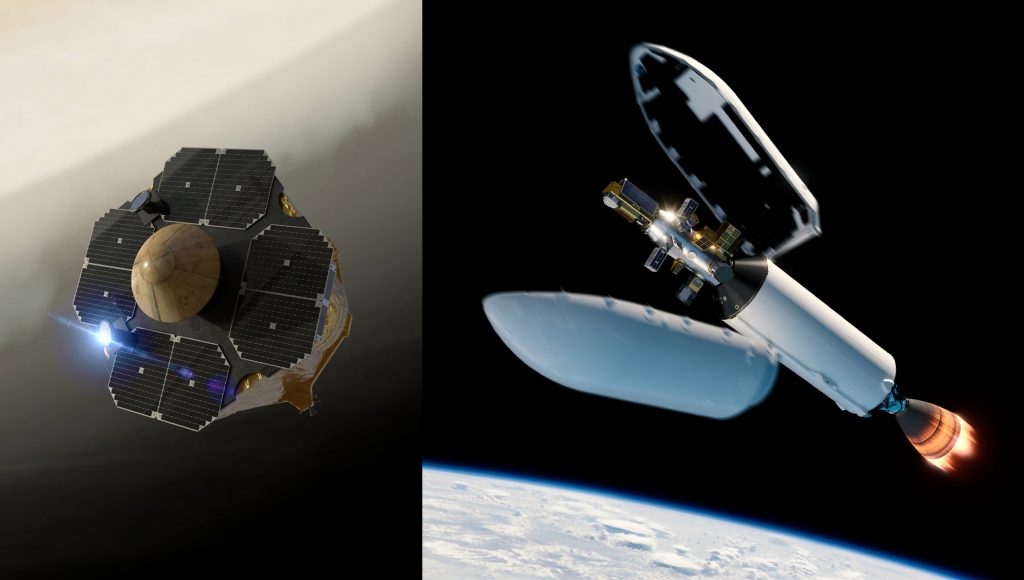How SpaceX intends to launch the world's first space factory into orbit

Saturday, October 23, 2021 | Chimniii Desk
Key Points
The company plans to collaborate with SpaceX to overcome this improbable obstacle, with the goal of creating materials in zero gravity. Varda Space has declared its intention to move its factory aboard a SpaceX-owned Falcon 9 rocket set to launch in early 2023. Varda Space, on the other hand, did not want to put all its eggs in one basket, as the New Zealand company is already responsible for developing the spaceship that will carry its supplies, as well as the re-entry capsule that will return them to Earth. This capsule is critical because the capsule will re-enter the Earth's atmosphere at Mach 28, and the materials must not break during the landing. By the end of 2024, Varda Space plans to launch a second or maybe a third mission.
Advertisement
 Pic: Varda co-founders Delian Asparouhov, left, and Will Bruey
Pic: Varda co-founders Delian Asparouhov, left, and Will BrueyTORRANCE (UNITED STATES), October 23 — Varda Space, a space research business, is attempting to be the first to create a manufacturing facility in space.
The company plans to collaborate with SpaceX to overcome this improbable obstacle, with the goal of creating materials in zero gravity. The first launch is scheduled for early 2023.
A space-based industrial complex? Varda Space's notion may seem far-fetched — after all, there is plenty of space on Earth for manufacturers — but it might very well benefit industries on Earth.
Varda's goal is to employ microgravity to develop novel materials or to advance the International Space Station's study on specific items.
According to TechCrunch, this type of in-space facility might be used to make bio-printed organs or specialised semiconductors, even if the firm has not made any official announcements at the time due to the lack of customer contracts.
Varda Space requires partners to assist in the journey to low Earth orbit. That is where SpaceX enters into play. SpaceX allows businesses interested in sending objects into space to do so via one of its scheduled launches.
In essence, the two firms will travel to space together. Once they reach their destination, they are free to go their separate ways — almost like a form of "space carpooling," though slightly different than your typical downtown commute.
Varda Space has declared its intention to move its factory aboard a SpaceX-owned Falcon 9 rocket set to launch in early 2023. SpaceX's new rockets will transport the factory's supplies into space.
While the terms of the arrangement have not been released, it is understood that the craft will spend approximately three months in orbit testing these new manufacturing methods.
Advertisement
A pivotal landing

Nonetheless, another launch option was investigated, namely Rocket Lab's "Electron" rockets. Varda Space, on the other hand, did not want to put all its eggs in one basket, as the New Zealand company is already responsible for developing the spaceship that will carry its supplies, as well as the re-entry capsule that will return them to Earth.
This capsule is critical because the capsule will re-enter the Earth's atmosphere at Mach 28, and the materials must not break during the landing.
In actuality, the most difficult part of the process, from manufacture to recovery, is this re-entry into the atmosphere.
Indeed, Mach 28 is 28 times the sound speed (1,224 km/h). Remember those science-fiction films in which a capsule is seen returning to Earth? Consider delivering delicate commodities in an unpredictable climate, while contending with a slew of external influences. This will surely be a pivotal point in the endeavour.
In contrast to other spacecraft that are specialised in communication or photography, Varda Space and its space factory do not require a specific orbit to accomplish their job. Indeed, the facility's only need is that it can maintain a low Earth orbit. This initial flight's lessons will be applied to subsequent flights.
By the end of 2024, Varda Space plans to launch a second or maybe a third mission.
However, this timeframe is still a long way off, which allows for the possibility of more initiatives. For example, the European Union is involved in the subject with the "PERIOD" project, which aspires to construct an orbital factory.
In collaboration with Airbus, it will focus on the assembly and fabrication of satellites directly from space.
In any case, these audacious endeavours provide a glimpse of some of the new opportunities available to industrialists and entrepreneurs across all sectors.
Advertisement